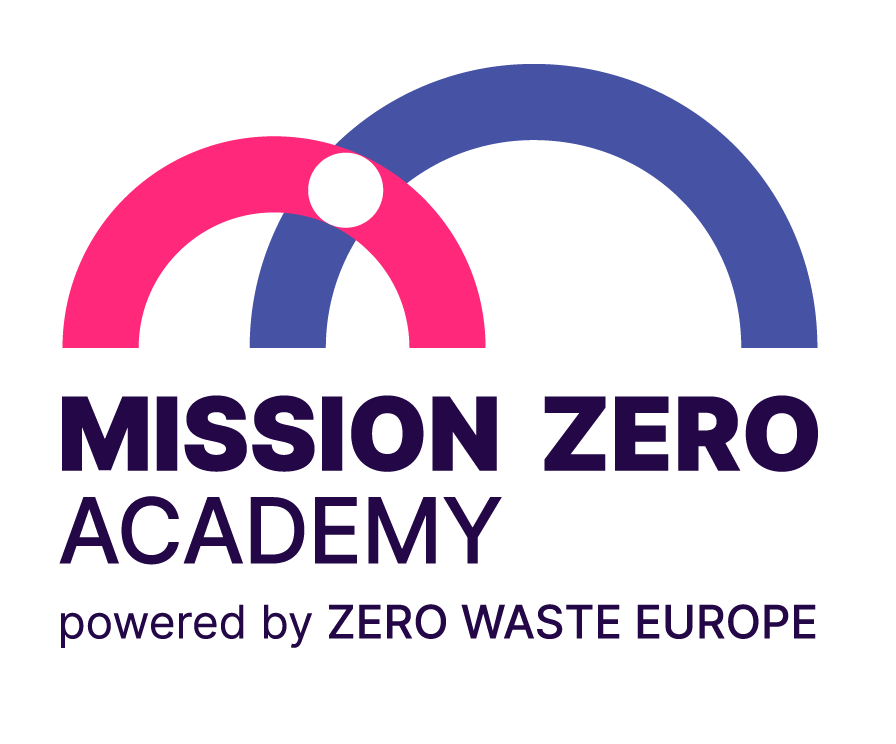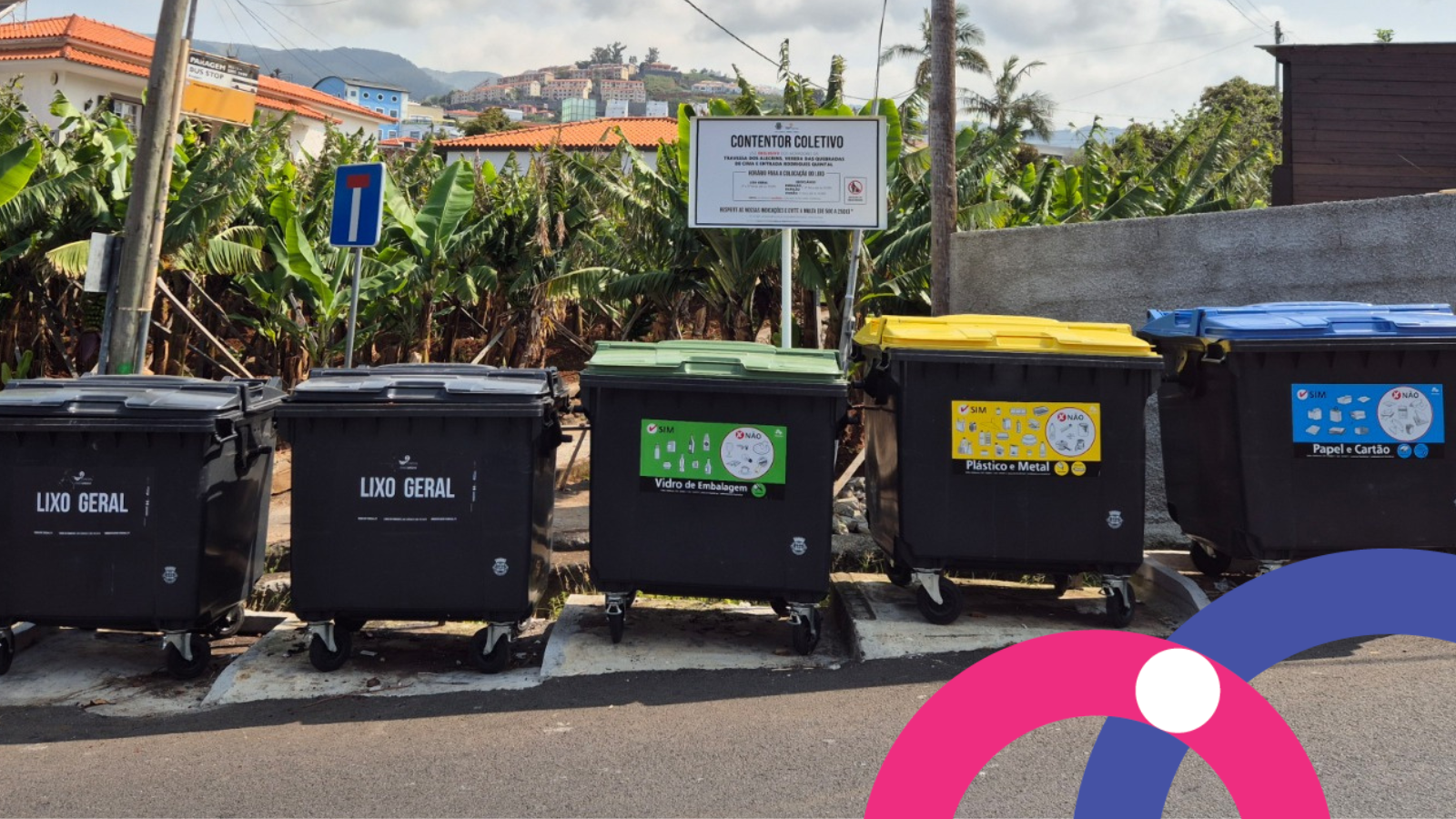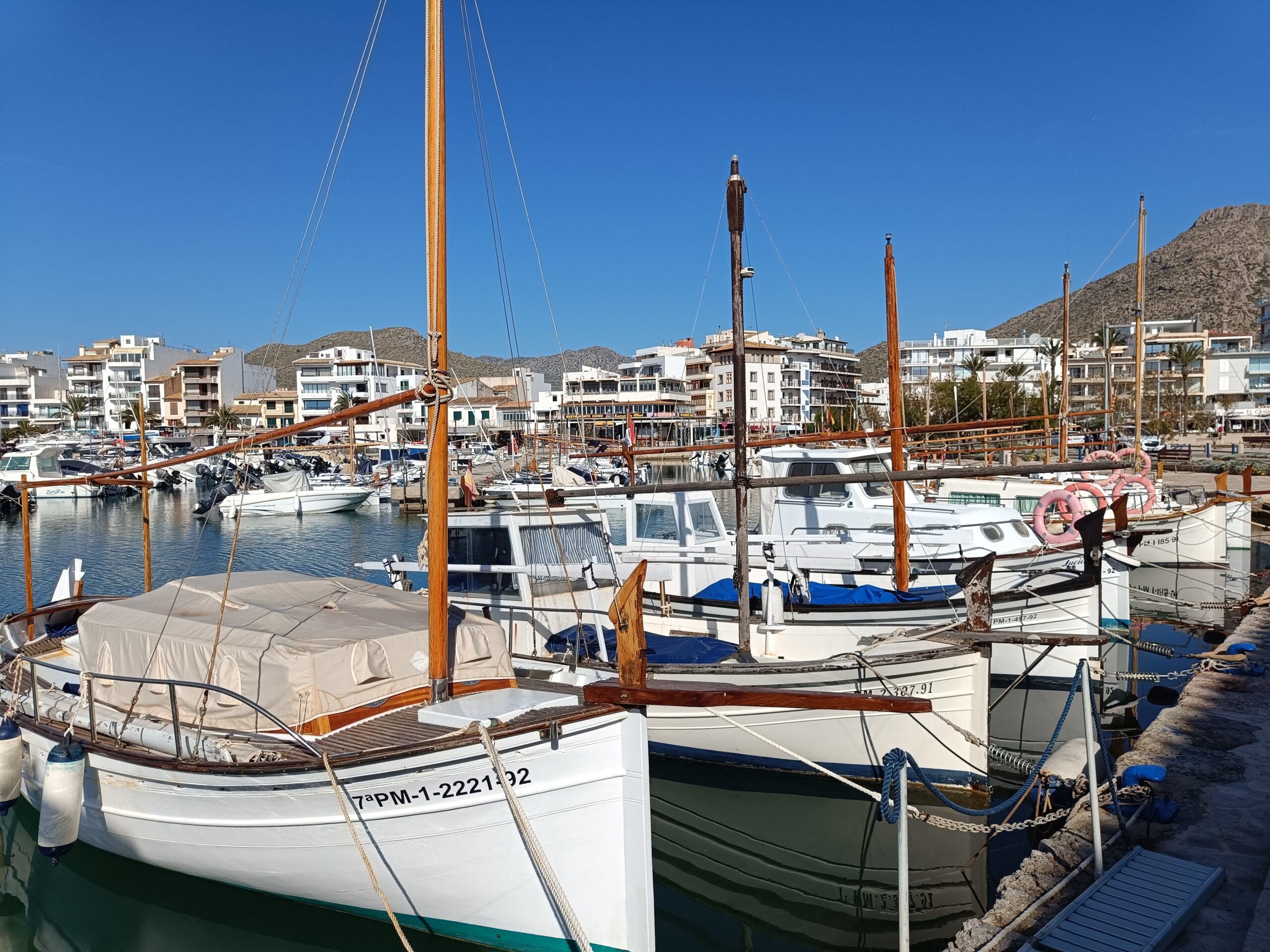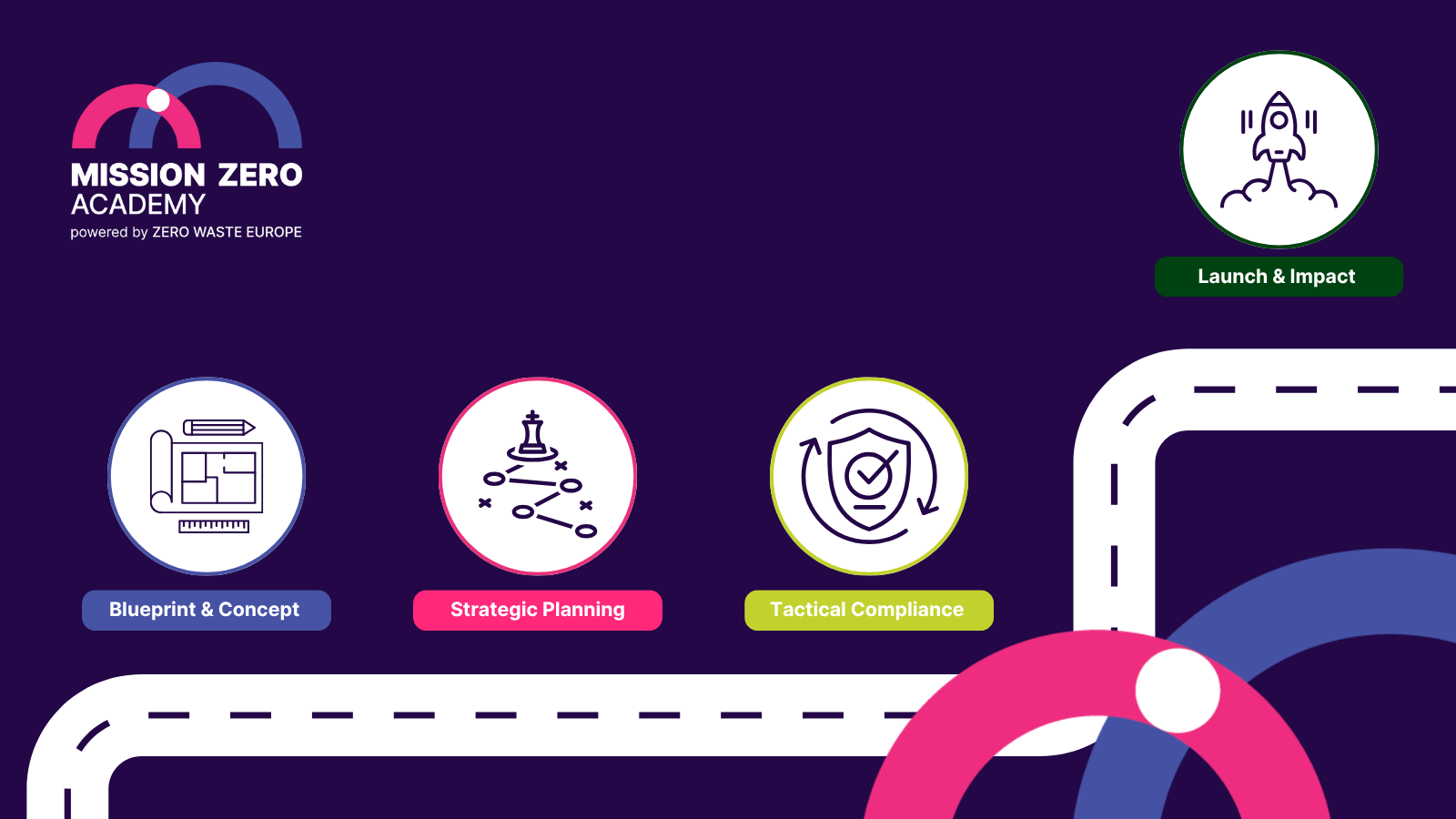It has become common knowledge that municipalities, often hubs of innovation and action, are amongst the best places to fight waste generation, where efforts to advocate and implement more sustainable and efficient resource management can have the greatest impact.
Today, nearly 400 municipalities from 9 different European countries have joined the Zero Waste Europe’s Cities Programme, committing to develop and implement a zero waste strategy and are currently working to reduce their waste production.
We are, however, witnessing a bigger movement. More and more decision-makers, politicians, and citizens are recognising the benefits of zero waste, while legislative frameworks are being put in place to support this transition.
Recognising this need for a more robust and formal system for guiding European municipalities towards zero waste, the Mission Zero Academy (MiZA), together with the European non-governmental organisation Zero Waste Europe (ZWE), designed the world’s first Zero Waste Cities Certification.
This independent third-party assessed certification standard is based on over 10 years of expertise and on ZWE’s and its members’ experience at the local level, supporting the adoption of community-centred zero waste models throughout Europe.
Want to know more? Keep reading to discover how to become a Certified City and certify your journey towards zero waste and circular economy implementation!
The Zero Waste Cities Certification: more than just a certificate
Within Europe today, the legislative framework has shifted – and continues to do so – towards facilitating the transition to zero waste. This has been made for example through the introduction of statutory recycling at the EU level.
Governments are increasingly recognising that the status quo of waste management is no longer sustainable. Yet, there remains a gap in the level of understanding and knowledge on how to adopt zero waste strategies at the local level.
For any European municipality wishing to reduce the volume of waste it generates, the Certification provides a robust framework that can become a municipal to-do list for a zero waste strategy.
Not only has the model been proven to reduce waste, but through adopting the policies within the Certification, municipalities can also:
- Reduce their expenditure on waste management,
- Reduce the amount of GhG emissions they emit,
- Create more local jobs in sustainable sectors, and
- Have a tool to connect more with the local community.
The Mission Zero Academy hosts and coordinates the whole Certification process. Through online and offline resources and services, MiZA helps guide organisations and municipalities on their journey to zero waste.
This is how a Certification becomes more than just a certificate.
Each municipality joining the Certification will be assigned their own zero waste mentor, who will help guide the work to ensure that impactful yet feasible strategies are designed and implemented. The mentors are trained regularly by MiZA and can connect the municipalities to the relevant resources, ensuring they are heading in the right direction.
How to become a Zero Waste Certified City in 5 simple steps
What should you do to become a Zero Waste Certified City?
The Zero Waste Cities Certification process comprises just 5 simple steps:
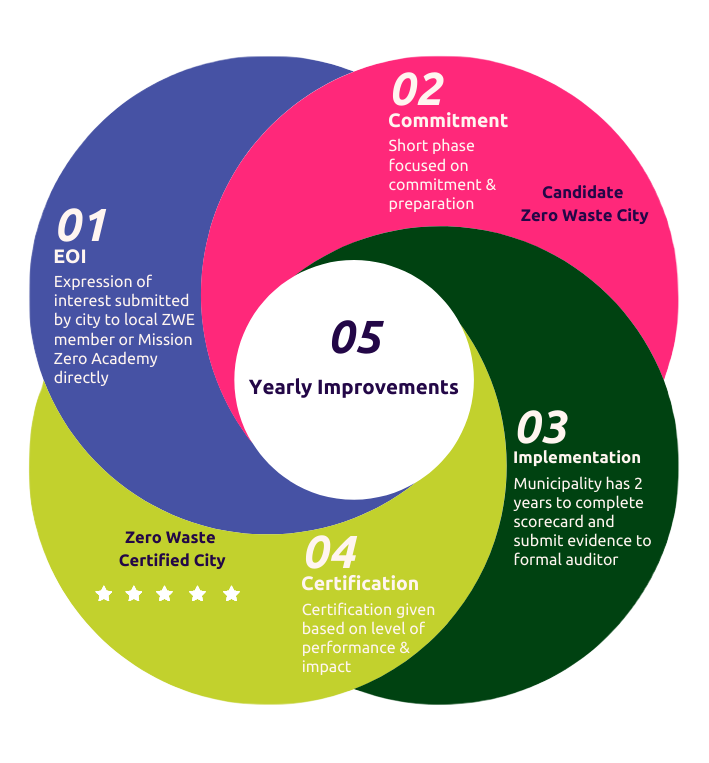
- Expression of Interest – submitted by the municipality to local Zero Waste Europe (ZWE) members or Mission Zero Academy.
- Commitment – in this phase, the municipality acquires the status of Zero Waste Candidate City and needs to create and present its own certification roadmap, under the specific requirements reported here.
- Implementation – the municipality then has a maximum of 2 years to implement and complete the Certification scorecard and submit evidence to the formal auditor in order to be certified.
- Certification – after a successful third party assessment focusing on the performance level and impact, the Candidate Municipality becomes a Zero Waste Certified City. Have a look at our Certification criteria for Certified Cities.
- Yearly improvements – following its Certification, a Municipality must carry out yearly improvements to monitor and enhance the outcomes achieved. They will be subjected to new audit processes every 3 years to confirm the Certification status, with the possibility to level up under a 5-star system.
There is no time to waste
Given the increasing waste generation levels on average across Europe, it is clear that the need for Zero Waste Cities is more pressing and urgent than ever. The vision of the brand new Certification is that it not only celebrates Europe’s best performing municipalities but also provides a robust framework to support and guide a new wave of European municipalities towards zero waste. Together with the Zero Waste Cities programme, both Zero Waste Europe and the Mission Zero Academy will supplement and complement each other as we accelerate Europe’s transition towards a circular future.
Would you like to join our programme? Discover how to become one of the first Certified Cities in Europe!

